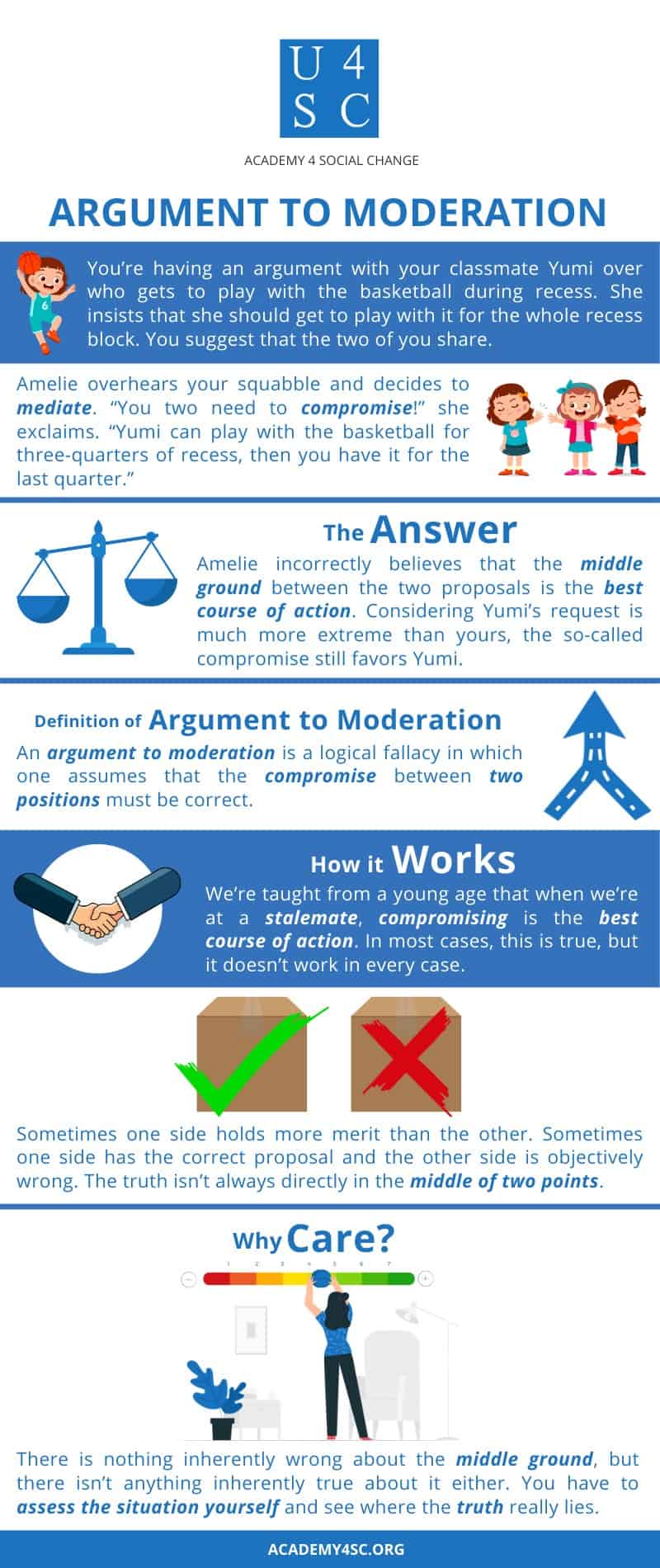Background
You’re having an argument with your classmate Yumi over who gets to play with the basketball during recess. Yumi insists that she should get to play with it for the whole recess block. You suggest that the two of you share: Yumi could have it for the first half of recess and then you’d have your turn for the last half. Amelie overhears your squabble and decides to mediate. “You two need to compromise!” Amelie exclaims. “Yumi can play with the basketball for three-quarters of recess, then you have it for the last quarter.” While Amelie’s proposal takes into account both sides of the argument, it doesn’t strike you as very fair - why?
Explanation
Amelie incorrectly believes that the middle ground between Yumi’s proposal and yours must be the best course of action. Considering Yumi’s request is much more extreme than yours, the so-called compromise still favors Yumi.
Argument to Moderation
An argument to moderation is a logical fallacy in which one assumes that the compromise between two positions must be correct.
How It Works
Argument to moderation is known by many names: false compromise, middle ground, fallacy of the mean, golden mean fallacy, and argumentum ad temperantiam, to list a few. Regardless of how you choose to refer to it, the fallacy works on the same principles. We’re taught from a young age that when we’re at a stalemate, compromising is the best course of action. In most cases, this is true, but it doesn’t work in every case. Sometimes one side holds more merit than the other. Sometimes one side has the correct proposal and the other side is objectively wrong. The truth isn’t always directly in the middle of two points.
For example, let’s say Zack wants to set the world on fire. Alex, like most sane individuals, disagrees with this idea. Now, the fallacy of the mean states that Alex should allow Zack to set half of the planet on fire - a clearly undesirable outcome.
Why Care?
As a culture, we’re obsessed with the benefits of the middle ground. Our society endorses compromise in the face of disagreements. When investigating and fact-checking, we’re told to listen to both sides of the story and make our own conclusions from there, with the implication that the truth lies somewhere in between them.
There is nothing inherently wrong about the middle ground, but there isn’t anything inherently true about it either. When facing complex issues, it’s important to keep that fact in mind. You have to assess the situation yourself and see where the truth really lies. Sometimes it’s in the middle and sometimes it favors one side over the other. Either way, you should pursue it and do your best to help others find it.



